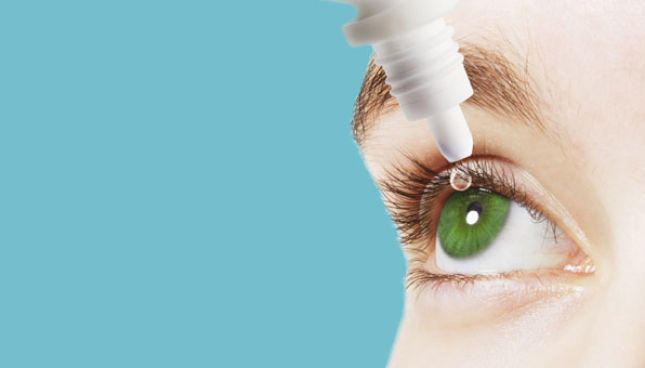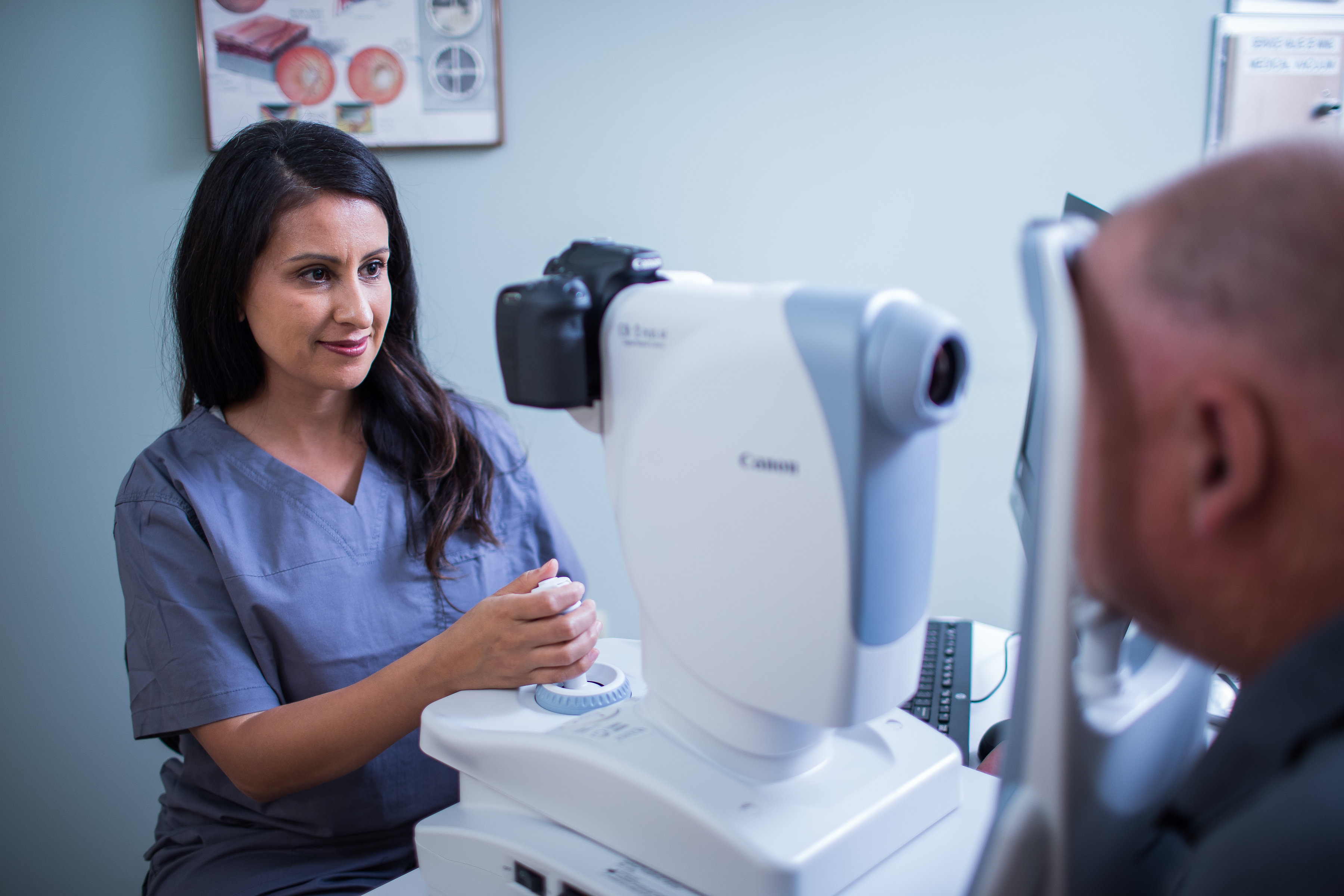Optometrist in Andalusia: Relied On Experts for Vision Health
Optometrist in Andalusia: Relied On Experts for Vision Health
Blog Article
Is Refractive Surgery Right for You? Factors to Think About for Better Eyecare
In the world of eye care, the choice to go through refractive surgical treatment is a weighty one that requires thoughtful factor to consider. As people seek clarity and flexibility from the constraints of corrective lenses, countless variables come right into play when identifying the suitability of such a procedure. From the details of one's eye health to the intricacies of individual assumptions and everyday practices, each element holds value in the wider landscape of refractive surgical procedure candidacy. By reviewing these vital elements with treatment and accuracy, a more clear path in the direction of educated decision-making arises.
Eye Wellness Examination
When thinking about refractive surgical treatment, a comprehensive eye health assessment is crucial to analyze the suitability of the procedure for each individual. neurologist andalusia. This examination entails a collection of examinations and examinations carried out by an eye care expert to establish the overall health and wellness of the eyes, the visibility of any type of hidden problems, and the security of the refractive error
Throughout the evaluation, numerous variables are thought about, such as the client's case history, current eye prescription, corneal density, pupil dimension, and tear film high quality. These evaluations aid to recognize any kind of contraindications to refractive surgical treatment, such as corneal irregularities, cataracts, or neglected eye infections. In addition, the evaluation helps to manage patient expectations concerning the possible end results of the surgical treatment based on their one-of-a-kind eye features.
Inevitably, the eye wellness examination is necessary in guaranteeing the safety and security and efficiency of refractive surgical procedure, as it offers beneficial insights into the person's eye health status and aids identify the most suitable therapy options for accomplishing optimum aesthetic outcomes. (andalusia pediatrics)
Lifestyle Assessment
A complete lifestyle assessment is indispensable in establishing the viability of refractive surgery for a person's visual correction demands. Lifestyle elements such as profession, leisure activities, and day-to-day tasks play an essential function in the decision-making process pertaining to refractive surgical procedure.
In addition, lifestyle behaviors such as sporting activities participation, outside activities, or also skincare routines can affect the healing process and overall success of refractive surgery. For instance, individuals that engage in contact sporting activities might need to take additional precautions to safeguard their eyes during the recovery period. Furthermore, people with considerable sunlight direct exposure might require extra post-operative like prevent difficulties. By performing a detailed lifestyle assessment, eye care experts can tailor their recommendations and therapy plans to meet the special requirements of each individual, eventually causing enhanced aesthetic end results and complete satisfaction.
Expectation Placement

Patients need to understand that while numerous individuals attain 20/20 vision or much better following refractive surgical procedure, some might still require glasses for certain activities like reading or driving at night. Taking care of these expectations assists avoid disappointment and frustration post-surgery, leading to a much more positive total experience for the person.
Danger Analysis

Variables that may raise the threat of problems include age, specific medical conditions like autoimmune diseases, unstable vision prescription, slim corneas, and impractical person expectations. Furthermore, selecting a knowledgeable and seasoned specialist, adhering to pre and post-operative care directions carefully, and disclosing any relevant clinical history can help alleviate risks.
To reduce the probability of problems, ophthalmologists perform extensive pre-operative assessments to determine any kind of click reference contraindications to surgical treatment. They likewise discuss the possible dangers and benefits with people during the appointment process. By engaging in open communication and shared decision-making, both the eye doctor and the individual can interact to figure out if refractive surgery is the right option based on individual danger accounts and desired results.
Consultation Relevance
Taking into consideration the critical function of notified decision-making in evaluating threats and prospective difficulties in refractive surgery, the examination procedure holds considerable relevance in directing individuals towards optimal outcomes. During the assessment, the eye doctor evaluates the individual's eye health, refractive mistakes, and overall viability for surgery. This preliminary analysis is vital in identifying one of the most appropriate procedure for every individual, taking into consideration aspects such as corneal density, pupil size, and existing eye conditions.
Additionally, the consultation offers as a possibility for people to review their assumptions, issues, and any kind of inquiries they might have regarding the surgery. Clear communication between the person and the cosmetic surgeon is crucial to guarantee realistic assumptions and a detailed understanding of the potential threats and advantages involved.
Additionally, the appointment permits the surgeon to discuss the different surgical options readily available, their respective end results, and the post-operative care required. This detailed conversation equips patients to make educated decisions about their eye care, resulting in better satisfaction and end results post-surgery.
Final Thought
In final thought, individuals thinking about refractive surgical treatment needs to undertake an extensive eye wellness assessment, assess their way of life practices, straighten their expectations with prospective outcomes, evaluate the involved risks, and focus on examinations with eye care specialists. These factors play an important duty in figuring out the viability of refractive surgical treatment for each and every person, ensuring optimal results and complete satisfaction with the procedure.
People considering refractive surgical procedure frequently have high assumptions regarding the end results, anticipating best vision without the requirement for glasses or contact lenses. While refractive surgical procedure can significantly improve vision and lower dependency on aesthetic aids, it is crucial for individuals to understand that outcomes may differ based on individual elements such as the degree of refractive error, corneal thickness, and look at here total eye health.
By engaging in open communication and shared decision-making, both the client and the eye doctor can work with each other to establish if refractive surgery is the ideal option based on specific risk accounts and desired end results.
Taking into consideration the vital function of informed decision-making in analyzing threats and prospective difficulties in refractive surgical treatment, the consultation process holds considerable importance in assisting patients in the direction of optimum results. Throughout the assessment, the ophthalmologist evaluates the individual's eye wellness, refractive errors, and total get more viability for surgery.
Report this page